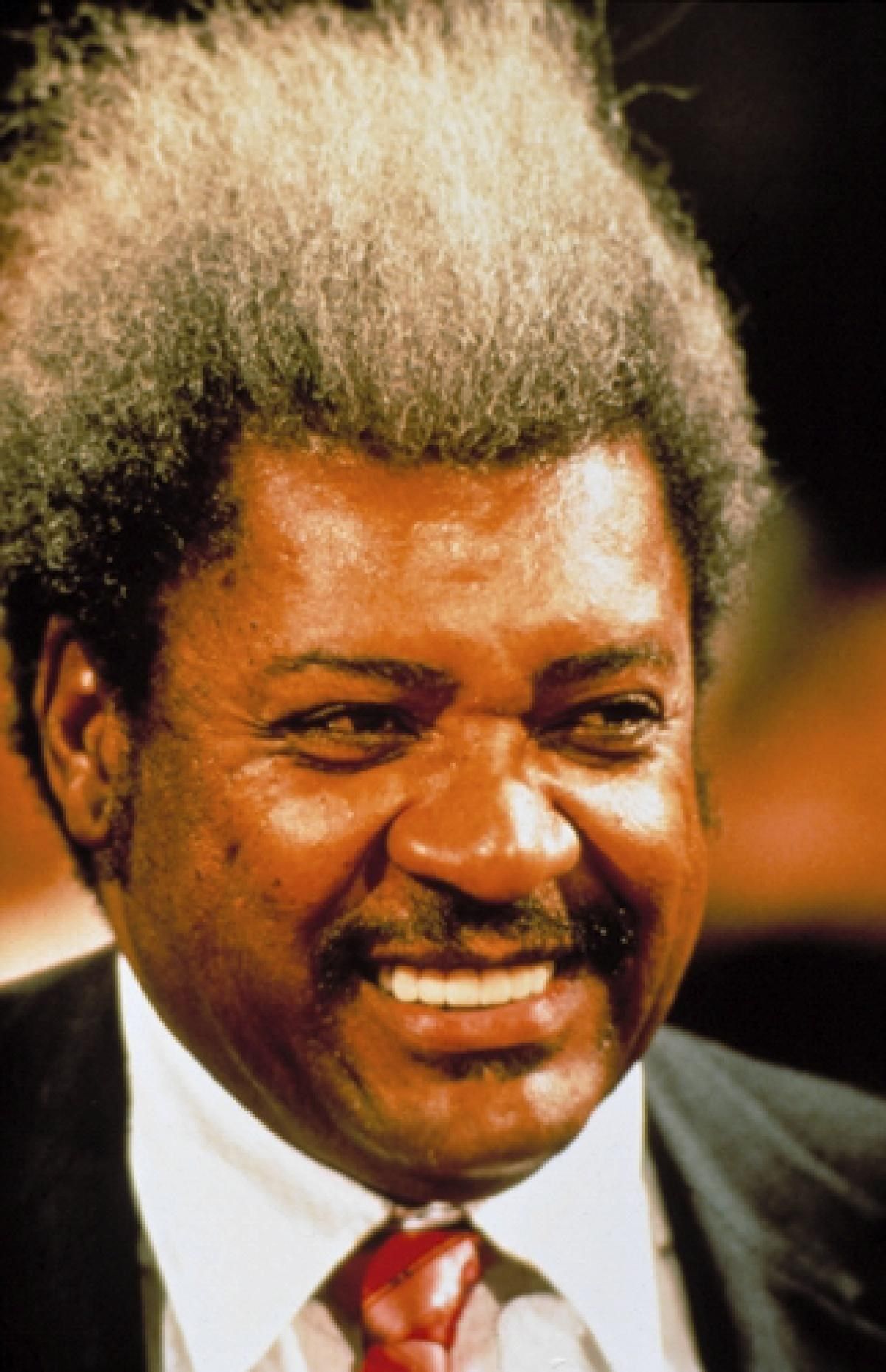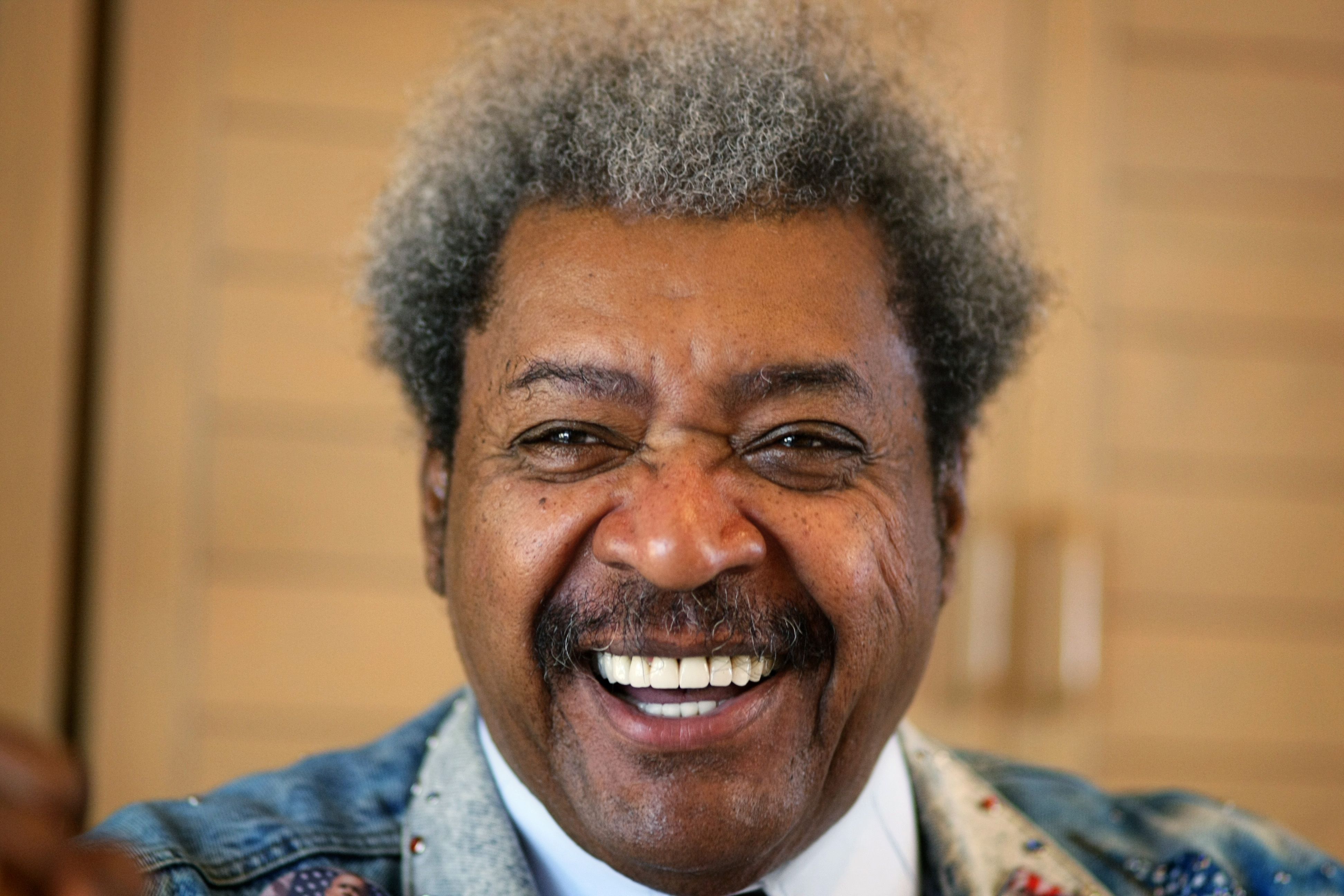Don King, a name synonymous with boxing, has left an indelible mark on the sport as one of its most polarizing and influential figures. Known for his flamboyant personality, trademark hairstyle, and unparalleled knack for promotion, Don King has been at the center of some of the most iconic moments in boxing history. From organizing legendary bouts like the "Rumble in the Jungle" to managing heavyweight champions like Muhammad Ali and Mike Tyson, King's influence extends far beyond the ring. His larger-than-life persona has made him both a celebrated figure and a controversial one, sparking debates about his business practices and legacy.
Born on August 20, 1931, in Cleveland, Ohio, Don King rose from humble beginnings to become one of the most recognizable figures in sports. Before his rise to fame, King was involved in various ventures, including running a numbers racket and even serving time in prison for manslaughter. However, it was his entry into boxing promotion that truly defined his career. With an uncanny ability to market fights and create global spectacles, King transformed boxing into a mainstream phenomenon. His promotional genius brought the sport to new heights, but it also attracted scrutiny and criticism, making him a figure of both admiration and controversy.
Despite the controversies surrounding him, there's no denying Don King's impact on boxing. His ability to create unforgettable moments, coupled with his relentless drive, has cemented his place in sports history. Whether you view him as a visionary or a controversial figure, Don King's contributions to boxing are undeniable. In this article, we'll explore his life, career, and legacy in detail, shedding light on the man behind the microphone and the stories that made him a household name.
Read also:Al Horford Kids A Comprehensive Guide To The Family Life Of The Nba Star
Table of Contents
- Biography of Don King
- Personal Details and Bio Data of Don King
- How Did Don King Rise to Prominence in Boxing?
- What Are Don King's Most Famous Fights?
- The Controversies Surrounding Don King
- Why Is Don King Considered a Visionary in Sports Promotion?
- Don King's Lasting Legacy in Boxing
- Frequently Asked Questions About Don King
Biography of Don King
Don King's journey from a troubled youth to becoming one of the most iconic figures in boxing is nothing short of extraordinary. Born in Cleveland, Ohio, in 1931, King grew up in a working-class family during the Great Depression. His early life was marked by hardship, but it also instilled in him a fierce determination to succeed. After dropping out of school, King became involved in illegal gambling operations, running a numbers racket in his neighborhood. This venture earned him a small fortune but also landed him in legal trouble.
In 1954, Don King's life took a dark turn when he was convicted of manslaughter after fatally shooting a man during a dispute. He served nearly four years in prison, an experience that profoundly shaped his worldview. Upon his release, King sought to reinvent himself and found his calling in boxing promotion. His big break came in 1974 when he organized the legendary "Rumble in the Jungle" between Muhammad Ali and George Foreman in Zaire (now the Democratic Republic of the Congo). The event was a massive success, catapulting King into the spotlight and establishing him as a force to be reckoned with in the boxing world.
Over the years, Don King's career has been defined by his ability to create larger-than-life events and his knack for securing lucrative deals for his fighters. He has promoted some of the biggest names in boxing, including Mike Tyson, Larry Holmes, and Evander Holyfield. While his methods have often been questioned, there's no denying his role in elevating boxing to new heights. King's life story is a testament to resilience, ambition, and the power of reinvention.
Personal Details and Bio Data of Don King
| Full Name | Donald King |
|---|---|
| Date of Birth | August 20, 1931 |
| Place of Birth | Cleveland, Ohio, USA |
| Occupation | Boxing Promoter |
| Notable Achievements | Promoted "Rumble in the Jungle" and "Thrilla in Manila"; Managed Muhammad Ali, Mike Tyson, and Larry Holmes |
| Controversies | Manslaughter conviction; Accusations of financial misconduct |
How Did Don King Rise to Prominence in Boxing?
Don King's rise to prominence in the boxing world is a tale of ambition, timing, and sheer audacity. Before becoming a boxing promoter, King dabbled in various ventures, including running a numbers racket and operating a bar. These experiences honed his skills in negotiation and deal-making, which would later prove invaluable in his career. However, it was his ability to think big and take risks that truly set him apart.
King's breakthrough came in 1974 when he secured the rights to promote the "Rumble in the Jungle," a heavyweight championship bout between Muhammad Ali and George Foreman. The fight was held in Zaire, and King's ability to negotiate with the country's dictator, Mobutu Sese Seko, showcased his knack for navigating complex situations. The event was a resounding success, drawing global attention and establishing King as a master promoter. Following this, he organized the "Thrilla in Manila" in 1975, another iconic fight between Ali and Joe Frazier.
Don King's success was not just about organizing fights; it was about creating spectacles that captured the public's imagination. He understood the power of storytelling and used it to build hype around his events. His ability to secure lucrative television deals and sponsorships further solidified his position in the industry. By aligning himself with top fighters and leveraging his promotional skills, King became a dominant force in boxing, shaping the sport's landscape for decades to come.
Read also:King Von Autopsy Results Unraveling The Truth Behind The Tragic Loss
What Are Don King's Most Famous Fights?
Don King's career is defined by his involvement in some of the most iconic boxing matches in history. These fights not only showcased his promotional genius but also cemented his reputation as a master of creating global spectacles. Below are some of the most famous fights he promoted:
- The Rumble in the Jungle (1974): This heavyweight championship bout between Muhammad Ali and George Foreman took place in Kinshasa, Zaire. It was a groundbreaking event that brought together sports, politics, and entertainment. Ali's victory in the eighth round is considered one of the greatest upsets in boxing history.
- The Thrilla in Manila (1975): Another legendary fight between Muhammad Ali and Joe Frazier, this bout was held in the Philippines and is often regarded as one of the fiercest battles in boxing history. Ali's victory in the 14th round solidified his legacy as "The Greatest."
- Mike Tyson vs. Trevor Berbick (1986): This fight marked Mike Tyson's rise to fame, as he defeated Trevor Berbick to become the youngest heavyweight champion in history. Don King's management of Tyson played a crucial role in launching the young fighter's career.
- Evander Holyfield vs. Mike Tyson I and II (1996-1997): These highly anticipated bouts between Holyfield and Tyson were among the most lucrative fights in boxing history. The second fight, infamous for Tyson biting Holyfield's ear, remains one of the most talked-about moments in sports.
Each of these fights not only showcased Don King's ability to create unforgettable events but also highlighted his knack for generating massive public interest. His promotional strategies, combined with his ability to secure top talent, made these fights cultural phenomena that transcended the sport of boxing.
The Controversies Surrounding Don King
While Don King's contributions to boxing are undeniable, his career has been marred by numerous controversies. One of the most significant controversies stems from his manslaughter conviction in 1954. King was found guilty of fatally shooting a man during a dispute over a gambling debt. Although he claimed the shooting was accidental, the incident cast a shadow over his early life and career.
In addition to his legal troubles, Don King has faced numerous accusations of financial misconduct. Many fighters, including Mike Tyson and Evander Holyfield, have alleged that King withheld payments or engaged in unethical business practices. These allegations have led to lawsuits and tarnished his reputation in the boxing community. Critics argue that King's aggressive tactics and willingness to exploit fighters for financial gain have overshadowed his achievements.
Despite these controversies, Don King has always maintained his innocence and defended his actions. He often attributes the criticisms to jealousy and misunderstandings, arguing that his contributions to boxing outweigh any negative press. Whether viewed as a visionary or a controversial figure, King's impact on the sport is undeniable, and his story serves as a complex chapter in boxing history.
Why Is Don King Considered a Visionary in Sports Promotion?
Don King's status as a visionary in sports promotion can be attributed to his innovative approach to marketing and his ability to create global spectacles. Unlike traditional promoters who focused solely on the fight itself, King understood the importance of storytelling and creating a narrative around his events. He transformed boxing matches into cultural phenomena, drawing attention from audiences far beyond the sport's usual fanbase.
How Did Don King Revolutionize Boxing Promotion?
One of Don King's most significant contributions to boxing was his ability to secure lucrative television deals and sponsorships. By partnering with major networks and brands, he ensured that his fights reached a global audience. This not only increased the visibility of boxing but also elevated the sport's financial stakes. King's emphasis on branding and marketing set a new standard for sports promotion, influencing promoters across various disciplines.
What Role Did Global Events Play in Don King's Success?
Don King's decision to host fights in international locations, such as Zaire and the Philippines, demonstrated his understanding of the global appeal of boxing. By taking fights to new markets, he expanded the sport's reach and introduced it to diverse audiences. These events were not just about the fight; they were cultural celebrations that brought together people from different backgrounds.
King's ability to think outside the box and take calculated risks has earned him a reputation as a trailblazer in sports promotion. His legacy continues to inspire promoters and marketers, proving that creativity and ambition can transform an industry.
Don King's Lasting Legacy in Boxing
Don King's legacy in boxing is multifaceted, encompassing both his achievements and controversies. On one hand, he is celebrated for revolutionizing the sport and creating some of its most iconic moments. On the other hand, his career has been marked by allegations of exploitation and misconduct. Despite these contradictions, King's influence on boxing is undeniable.
One of King's greatest legacies is his role in elevating boxing to a global stage. By organizing high-profile events and securing lucrative deals, he brought unprecedented attention to the sport. His ability to create larger-than-life spectacles ensured that boxing remained relevant in an ever-changing sports landscape. Fighters managed by King, such as Muhammad Ali and Mike Tyson, became household names, further cementing his impact on the sport.
Looking ahead, Don King's contributions will continue to shape the future of boxing. His innovative promotional strategies have set a benchmark for modern promoters, and his ability to create unforgettable moments serves as a blueprint for success. While his controversies may remain a topic of debate, there's no denying that Don King has left an indelible mark on boxing history.
Frequently Asked Questions About Don King
What Was Don King's Most Famous Achievement?
Don King's most famous achievement was organizing the "Rumble in the Jungle" in 1974, a heavyweight championship bout between Muhammad Ali and George Foreman. The event was a groundbreaking success and established King as a master promoter.
How Did Don King Influence the Boxing Industry?

